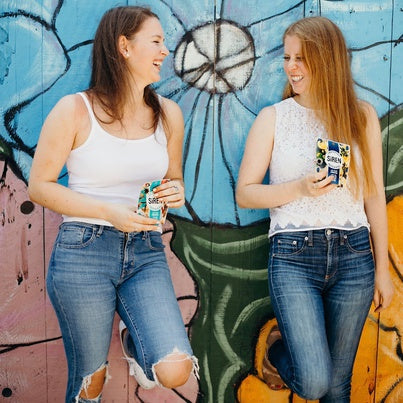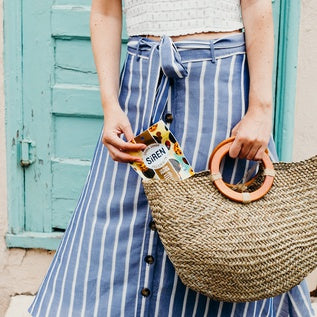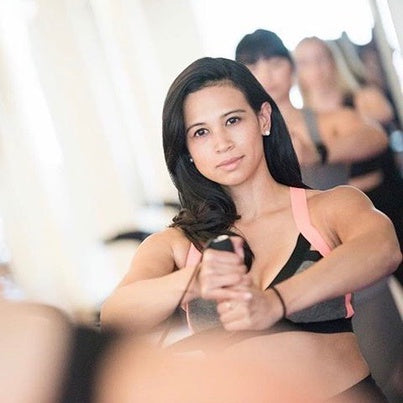
17.08.18
FIRST YEAR REFLECTIONS: 10 LESSONS LEARNED FROM LAUNCHING A FOOD BUSINESS
This week we celebrated Siren’s first birthday and wow, what a year it’s been. We’ve had some crazy experiences, like nearly getting banned from a tradeshow, sneaking into the “Authorized Personnel Only” zone at the US Postal Service headquarters, riding the Siren Snacks tricycle across San Francisco at 3am, and lugging an empty bathtub across New York City. There’s also been so many highs, like seeing our product on shelves for the first time, getting fan mail from happy customers, and hearing from our dream retailers that they will be introducing Siren Snacks as a new item.
Our biggest takeaway? Nothing can really prepare you for what it’s like to start a company. We literally eat (yes, we eat a lot of Siren Snacks), sleep (the Siren dreams started happening about 1 month in), and breathe (if you’ve accidentally inhaled monk fruit or pea protein, you’ll know what we mean) it 24/7. Regardless of whether you were a business major or read all the books on entrepreneurship, there’s nothing quite like the putting yourself out there, getting your hands dirty, and doing the damn thing. Starting this business has challenged us, brought us to tears (many more times than we’d like to admit), and taught us WAY more than we ever learned in school.

We’ve compiled a list of our biggest takeaways and learnings from Year 1:
You are your best salesperson:
No one can tell your story as effectively as you can. This means that YOU need to be the one out there dropping off samples and talking to everyone who will listen about your product. We’re both introverts and nothing makes us more uncomfortable than cold calling, but cold calls and talking to strangers about Siren has been an essential part of our jobs over the past year.
Product development is an ongoing process:
In the CPG world, you need to make sure the product you taste straight out of the mixing bowl is just as good as the product your customer purchases across the country in 6 weeks. The products and recipes we launched last year are different from the product we sell today, and we’re confident that our products will continue to evolve in the next year.
get to know your customers:
Get out there and talk to your customers - what do they like about your product? What do they think can be improved? We’ve done over a hundred demos over the past year, and the feedback we’ve gathered has allowed us to continue to iterate on and improve our products based on real, unbiased feedback.

Once you get on shelf the journey has just started:
Get confirmation from the buyer that they are going to bring you into their store? Great! Take a moment to celebrate, but realize that it is just the beginning. With thousands of products in every store, every brand has to fight for the best spot on the shelf. Be ready to support your accounts with demos and promotions, because if your products don’t sell, there is another company waiting to take your spot on the shelf.
Learn how to disconnect:
Don’t be surprised if your stress from work starts to creep into your dreams (don’t even ask us how many times we’ve dreamt of pea protein)… so it’s important to find a way to disconnect, even just for an hour or two. Take a yoga class, go for a run, or maybe just sit outside and take a few deep breaths. We're definitely still working on this, but have learned that we're so much more productive when we make time to take care of ourselves and keep our stress in check.
Seek advice from other companies who are just one step ahead of you:
We’ve found that the best advice comes from other founders who have recently gone through some of the hurdles and challenges we’re currently experiencing. While it can be inspirational to connect with more senior executives at larger companies, we’ve received the best tactical advice from companies who are just slightly ahead of us.

Plan for things to go wrong:
We’re not trying to be pessimistic here, but the reality is that errors happen and things don’t always go as planned. Shipments get delayed, orders get lost in the mail, and people can get flaky or change their mind. We’ve learned to not sweat the small stuff and to always have a Plan B.
No task is too small for a founder:
Starting a food company is not as glamorous as it looks. In the first year we’ve had to wear ALL the hats, including the delivery guy, the packaging and production worker, and even the janitor. If you’re only interested in working in powerpoint or spreadsheets, this is not the job for you (maybe try consulting?).
Don’t ask for permission, beg for forgiveness:
Sometimes it’s ok to play the “sorry, we’re a startup!” card.
Take time to hire the right people:
In the early days, we rushed into some hiring decisions and learned that, as a small company, adding just one person who was not the right fit took a toll on our goals, productivity, and culture. We’ve learned how important it is to really get to know each candidate before making a hiring decision - check references and get know them beyond what’s on their resume.


We Went Grocery Shopping With a Natural Chef and Nutrition Consultant
When we’re making our weekly round at the grocery store, we often find ourselves debating if we should toss a certain item in the cart. Anyone els... READ MORE

How to Keep Your Wellness Routine During Wedding Season
Spring has officially sprung. We love filling our vases up with seasonal daffodils and filling our refrigerator door up with wedding invitations. ... READ MORE

What This Pilates Instructor Eats to Stay Energized All Day
It’s one thing to be in class with your favorite fitness instructor, carefully watching, listening, and following their every cue. But what if you... READ MORE
